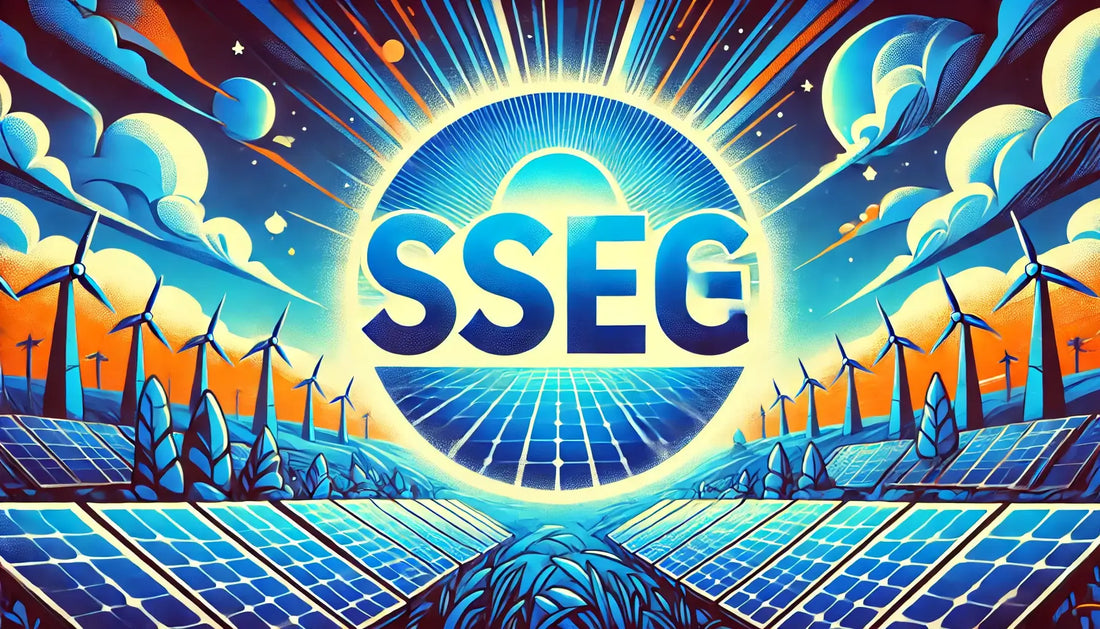
Do I need permission from Eskom to Install Solar Panels?
SAPAC ReporterShare
Do I need permission from Eskom to Install Solar Panels?
Prepared by : SAPAC Reporter
Article Classification: Information
Image courtesy: SAPAC
Get in contact with SAPAC:
Besoek | Visit https://sapac.co.za/
📑 Complete Form: Link (PRESS HERE) FOR SAPAC
Areas: Southern Africa, Northern Cape, Western Cape, Cape Winelands, Free State, Gauteng, North West Province, Limpopo, Mpumalanga, Natal
Did you know that with SAPAC there are trusted firms, that complies with regards to requirements. To get in contact complete the form above. Further down in the article is much more information for you.
Installing solar panels in South Africa involves navigating a complex regulatory framework designed to ensure safety, compliance, and the efficient integration of renewable energy into the national grid. Both Eskom, the national electricity supplier, and local municipalities play pivotal roles in this process. This article delves into the reasons behind the necessity for obtaining permission from Eskom, the pertinent regulations within the Electrical Installation Regulations, specific South African National Standards (SANS), and other applicable regulations, including local municipal by-laws.
The Imperative for Eskom's Permission
(Eskom Holdings SOC Ltd) is a state-owned company that generates, transmits, and distributes electricity in South Africa. It's the largest electricity provider in Africa)
Eskom mandates that all grid-tied solar power systems connected to its network be registered and approved, regardless of whether they feed electricity back into the grid. Unregistered systems are deemed illegal, and non-compliance can result in significant penalties, including fines and potential disconnection from the power supply. This stringent requirement ensures that all installations meet safety and technical standards, thereby maintaining grid stability and protecting both the infrastructure and end-users.
Relevant Regulations within the Electrical Installation Regulations
The Electrical Installation Regulations, promulgated under the Occupational Health and Safety Act (OHS Act), set forth the legal framework governing electrical installations in South Africa.
Key provisions include:
Regulation 5: Mandates that electrical installations comply with the relevant SANS standards to ensure safety and reliability.
Regulation 7: Requires that any person who designs, installs, or alters an electrical installation must be a registered person, ensuring that only qualified professionals undertake such work.
No person other than a registered electrical contractor may install a Solar PV Management system. And you must ensure that such person is a registered Electrical Contractor, they must prove they are an installation electrician or a Master Installation Electrician with a Wiremans Licence. A single phase tester "electrician" may not install a solar pv management system unless they have on site an installation electrician that is known as General Control
Regulation 9: Stipulates the necessity for a Certificate of Compliance (CoC) for all electrical installations, confirming adherence to the prescribed standards.This means that the electrical contractor issuing the coc must be on site while the installation is taking place, and after that issue the Certificate of Compliance
These regulations underscore the importance of safety and professional accountability in electrical installations, including solar photovoltaic (PV) systems.
Further more, you must be cognisant of the fact you as the owner / lessor or lessee are the responsible person for the said installation. And if this installation is not in line with the legal requirements. You are sitting with a major problem. Power can kill, burn and maime. Be careful of social media posts. This is where you can approach SAPAC for free assistance.
Specific SANS Standards Applicable to Solar
Installations
Compliance with South African National Standards is crucial for ensuring the safety, performance, and reliability of solar installations. Pertinent standards include:
SANS 10142-1: This standard, known as the "Wiring of Premises," outlines the requirements for low-voltage installations. It covers aspects such as wiring methods, earthing, and protection against overcurrent, ensuring that installations are safe and fit for purpose.
SANS 10142-1-2: An extension of the above, this standard provides additional special requirements for low-voltage small-scale embedded generation (SSEG) installations connected to the grid. It addresses specific considerations for integrating renewable energy sources, such as solar PV, into existing electrical systems.
NRS 097-2-1: This specification outlines the utility interface requirements for embedded generation. It provides guidelines on the connection of SSEG systems to the utility network, ensuring compatibility and safety.
Adherence to these standards is mandatory and ensures that solar installations are safe, efficient, and compatible with the national grid.
Other Relevant Regulations and Municipal By-Laws
Beyond national regulations, local municipal by-laws also govern the installation of solar systems. Homeowners are required to obtain written permission from the relevant municipal departments before proceeding with installations. This process typically involves submitting detailed plans and specifications of the proposed system for approval.
The National Energy Regulator of South Africa (NERSA)
Furthermore, adherence to building codes and environmental regulations is crucial. This includes ensuring that the structural integrity of the building can support the solar panels and that the installation does not contravene any environmental impact assessments or heritage site considerations.
Rationale
Navigating the regulatory landscape for solar panel installations in South Africa is complex but essential for ensuring safety, compliance, and the efficient integration of renewable energy into the national grid. Obtaining the necessary permissions from Eskom and local municipalities, adhering to the Electrical Installation Regulations, and complying with relevant SANS standards are critical steps in this process. Engaging with qualified professionals and staying informed about the latest regulatory requirements will facilitate a smooth and compliant installation, contributing to a sustainable energy future.
Illegal Systems: If you are sitting with an illegal system get in contact at once
Also Read
Contact SAPAC for assistance to get in Contact with a Registered Professional Electrician!
SAPAC this is the Way!
SAY NO TO COMMISSIONS OR REFERRAL COMMISSIONS ITS HURTING THE ECONOMY
South Africa Current Time (SAPAC Time) - 24 Hour Format


